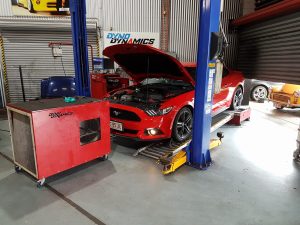
Taking care of your vehicle is essential to ensure its longevity and performance. One crucial aspect of maintenance is regular oil changes. In this comprehensive guide, we will explore the frequency and importance of oil changes, providing you with the knowledge you need to keep your engine running smoothly.
Understanding Engine Oil
Engine oil plays a vital role in lubricating the internal components of your engine, reducing friction, and preventing wear and tear. There are different types of engine oil available, including conventional, synthetic, and synthetic blends. Each type has its own benefits and is suitable for specific driving conditions. Additionally, engine oils are assigned viscosity ratings, such as 5W-30 or 10W-40, indicating their flow characteristics at different temperatures.
The frequency of oil changes varies depending on several factors, including the type of engine oil used, driving conditions, and manufacturer recommendations. As a general rule of thumb, it is recommended to change your engine oil every 5,000 miles or six months, whichever comes first. However, if you frequently drive in extreme temperatures or engage in heavy towing or hauling activities, you may need to change your oil more frequently.
Signs that an Oil Change is Needed
Your vehicle will often give you signs that it’s time for an oil change. Pay attention to dashboard warning indicators, such as the oil change light or low oil pressure warning. Engine performance issues, like decreased power or rough idling, can also indicate the need for fresh oil. Additionally, if you notice unusual sounds or smells coming from your engine, it’s time to schedule an oil change.
Oil change is needed for the smooth functioning of your vehicle. It helps to keep the engine lubricated, which in turn enables all the parts to work together seamlessly without causing any damage. Ignoring the signs and not getting an oil change when needed can result in serious and expensive engine problems.
Therefore, it’s important to pay attention to the signs that your vehicle is giving you and schedule an oil change promptly. Don’t wait until it’s too late and you end up with a broken-down car on the side of the road. Keep track of your vehicle’s maintenance schedule and make sure to get an oil change as recommended by the manufacturer or your trusted mechanic.
Determining the Frequency of Oil Changes
To determine how often you should change your oil, refer to your vehicle’s manufacturer recommendations. These guidelines typically consider factors such as mileage, driving conditions, and the type of oil used. If you frequently drive in severe conditions, such as stop-and-go traffic, extreme temperatures, or towing heavy loads, you may need to change your oil more frequently than the standard recommendations.
Determining the frequency of oil changes is crucial for maintaining the health of your vehicle. Regular oil changes not only help improve vehicle performance but also extend engine life. Neglecting oil changes can cause engine components to wear out faster and potentially lead to costly repairs.
By following the manufacturer’s recommendations and adjusting for severe driving conditions, you can ensure that your vehicle’s engine stays in top shape and continues to function properly. Don’t forget to also check your oil level regularly between changes to catch any potential issues early on. Your car will thank you for it!
DIY vs. Professional Oil Change
Changing your own oil can be a cost-effective option and give you a sense of accomplishment. However, it’s important to follow proper procedures and use the right tools and materials. If you’re unsure about tackling the task yourself or prefer to have a professional handle it, consider taking your vehicle to an authorized service center. They have the expertise and equipment to perform the oil change correctly.
DIY oil change can save you money and can be a great learning experience for those who are interested in learning more about their car. However, it’s important to remember that changing your own oil requires a certain level of skill and knowledge. You need to know how to drain the old oil properly, dispose of it in an environmentally friendly manner, and refill the engine with the correct type and amount of oil.
While a professional oil change may cost you a bit more, it comes with certain benefits. Firstly, professionals have the advantage of experience and skill. They know exactly what equipment to use and are familiar with the techniques needed for a precise oil change. Secondly, they can also conduct a thorough inspection of other components while changing the oil, helping you save money on future repairs.
Step-by-Step Guide to Changing Engine Oil
If you decide to do your own oil change, here’s a step-by-step guide to help you through the process:
- Gather the necessary tools and materials, including the correct type and quantity of oil, a new oil filter, a wrench, an oil pan, and gloves.
- Prepare your vehicle by parking it on a level surface, engaging the parking brake, and allowing the engine to cool down.
- Locate the oil drain plug underneath the engine and place the oil pan beneath it.
- Unscrew the drain plug, allowing the old oil to drain completely. Be cautious as the oil may be hot.
- While the oil is draining, remove the old oil filter and replace it with a new one. Make sure to lubricate the rubber gasket on the new filter with fresh oil.
- Once the oil has drained, reinstall the drain plug and tighten it securely.
- Locate the oil filler cap on the top of the engine and remove it. Pour the recommended amount of fresh oil into the engine, using a funnel if necessary.
- Check the oil level using the dipstick, ensuring it falls within the recommended range. Add more oil if needed.
- Finally, replace the oil filler cap, start the engine, and let it run for a few minutes. Check for any leaks and listen for unusual noises.
Proper Disposal and Recycling of Used Oil
It’s important to dispose of used oil responsibly to minimize environmental impact. Improperly discarded oil can contaminate soil and water sources. Check your local regulations for oil disposal guidelines. Many communities have recycling centers or collection points where you can drop off used oil for proper recycling.
Recycling used oil has several benefits. It helps in conserving natural resources, reducing pollution and energy consumption. Recycled oil can be refined and used again, thus reducing the need for new oil production. Additionally, it is worth noting that re-refined oil actually performs better than newly refined oil as it contains fewer impurities.
One easy way to ensure proper disposal of your used oil is by taking your vehicle to a certified mechanic or oil change service provider. They have the necessary equipment and expertise to dispose of the used oil safely and efficiently.
Common Oil Change Mistakes to Avoid
While performing an oil change, it’s crucial to avoid common mistakes that can lead to engine damage or other issues. Some common pitfalls include overfilling or underfilling the oil, using the wrong type of oil for your vehicle, and neglecting to replace the oil filter. Always double-check the recommended oil type and quantity, and ensure you install a new oil filter with every oil change.
There are common mistakes to avoid when it comes to changing the oil in your vehicle. Ensuring that you do not overfill or underfill the oil, using the recommended oil type and quantity for your vehicle, and replacing the oil filter with each oil change are all important factors to keep in mind. Neglecting these steps could potentially lead to engine damage or other issues down the line. Be sure to double-check the specifications before starting your next oil change.
Conclusion
Regular oil changes are vital for maintaining the health and performance of your vehicle’s engine. By understanding the importance of oil changes, determining the appropriate frequency, and following proper procedures, you can ensure that your engine operates smoothly and efficiently for years to come. Remember, a well-maintained engine is a happy engine!
At DT Performance , we offer professional oil change services that will ensure your vehicle’s engine is running at its best. We take pride in using high-quality oils and filters, as well as following manufacturer specifications to provide the best care for your vehicle. Don’t let common oil change mistakes cause damage to your engine – trust our team of experts to give your car the care it deserves. Schedule your next oil change with us today.
See Other Related Post

DT Performance is Here to Help – Services We Offer
DT Performance is Here to Help – Services We Offer Are you looking for a reliable and affordable data transmission solution? DT Performance has you

What are the advantages of having anything repaired by a mechanic?
What are the advantages of having anything repaired by a mechanic? The advantages of having anything repaired by a mechanic are many. For one thing,

8 Car Maintenance Tips To Keep Your Car Running Like New
8 Car Maintenance Tips To Keep Your Car Running Like New No one wants to deal with car troubles, but they’re a fact of life.

How to keep your car in top condition?
How to keep your car in top condition? Maintaining your car is essential. You want to keep it in top condition to avoid any costly

Find a Mechanic Near Me: 10 Tips to Choosing the Right One
Find a Mechanic Near Me: 10 Tips to Choosing the Right One https://youtu.be/mL7Fvm9_Y2Q We all know how important it is to have a good Mechanic.

Enhance Your Driving Experience: Engine Performance Upgrades in Darwin, NT
Enhance Your Driving Experience: Engine Performance Upgrades in Darwin, NT Are you tired of driving a sluggish car that lacks power and acceleration? Do you

The Benefits of Choosing a Professional Mechanic
The Benefits of Choosing a Professional Mechanic When it comes time to take your car in for a tune-up, service, or repair, who do you


